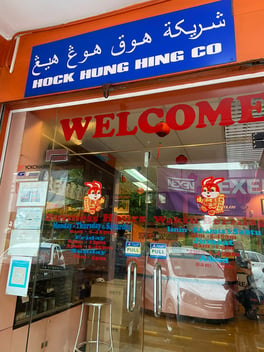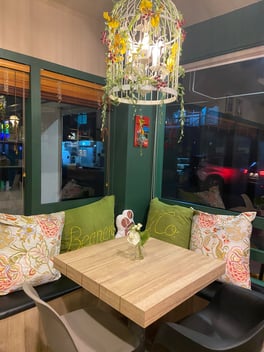After this year’s Spring Festival, I went to Kuala Belait in Brunei to conduct AIRINC’s cost-of-living research. In addition to collecting prices in supermarkets and checking menus in restaurants, I interviewed real estate agents and relocation specialists to investigate the expatriate rental market. When I showed up in our sources’ offices with last year’s rental prices, they said the figures were fair as asking prices.
Given that the current rents were lower than the asking prices, it was possible to ask for significant negotiation for some properties. My sources suggested that I should share the asking prices with clients instead of the original prices. They said high asking prices can leave room for negotiation. Tenants are happier when they sign the lease at a lower rent than expected. Also, landlords are willing to cover utilities and other fees when they reach an agreement. If tenants pursue the bottom price, there is no room for landlords to compromise. So, a high asking price is a win-win situation for both parties.

I was surprised when I heard about this strategy because many countries I have researched do not work this way. When I interviewed housing sources in Australia last summer, agents gave the real rental cost rather than a high quote for negotiation. Moreover, I realized this is not only happening in some rental markets, but I found myself bargaining all the time with taxi drivers in Kazakhstan, Indonesia, and Malaysia. I used prices from Grab, an online taxi platform, as a reference to haggle with taxi drivers.

In some places, bargaining is still necessary even if you can speak the language. When I was in Bintulu, Malaysia, I asked a Grab driver about his experience taking taxis in Kuala Lumpur. Even though he can speak Malay, he still worries that a driver may take the long way deliberately. Instead of paying a taxi fare based on distance, he prefers to bargain with the driver and hops into a cab with a fixed cost.
No matter if you can speak the language or not, I think bargaining implies that you think like a local and you know how to play the game. Haggling is the art of dancing between two parties that do not know each other very well. Two strangers are bargaining back and forth until reaching a balance, and then the relationship is built up. Yes, you may still be seen as an outsider. However, if you know how to pick up a custom that everybody else knows, it seems like you know a secret entry to other cultures.

I started to wonder, is it possible that landlords and tenants start knowing each other better by negotiation? They get to know what the other person cares about, what their personality is like, what is unbearable, what is the bottom line, and what needs to be compromised in the negotiation. Both make some concessions and contribute to the final agreement. Bargaining is a process to interact and form a better relationship, which can help both sides in the future.
Having successfully navigated rent negotiation, a tenant that needs to break a lease in advance may find that the landlord is fine with it and even returns the deposit quickly.
Did you know: Hao is one of the team of full-time Researchers who collect onsite data every quarter. Subscribe now to hear more from our researchers!




%20(53)%20(1).png)
%20(92)%20(1).png)
%20(31).png)

